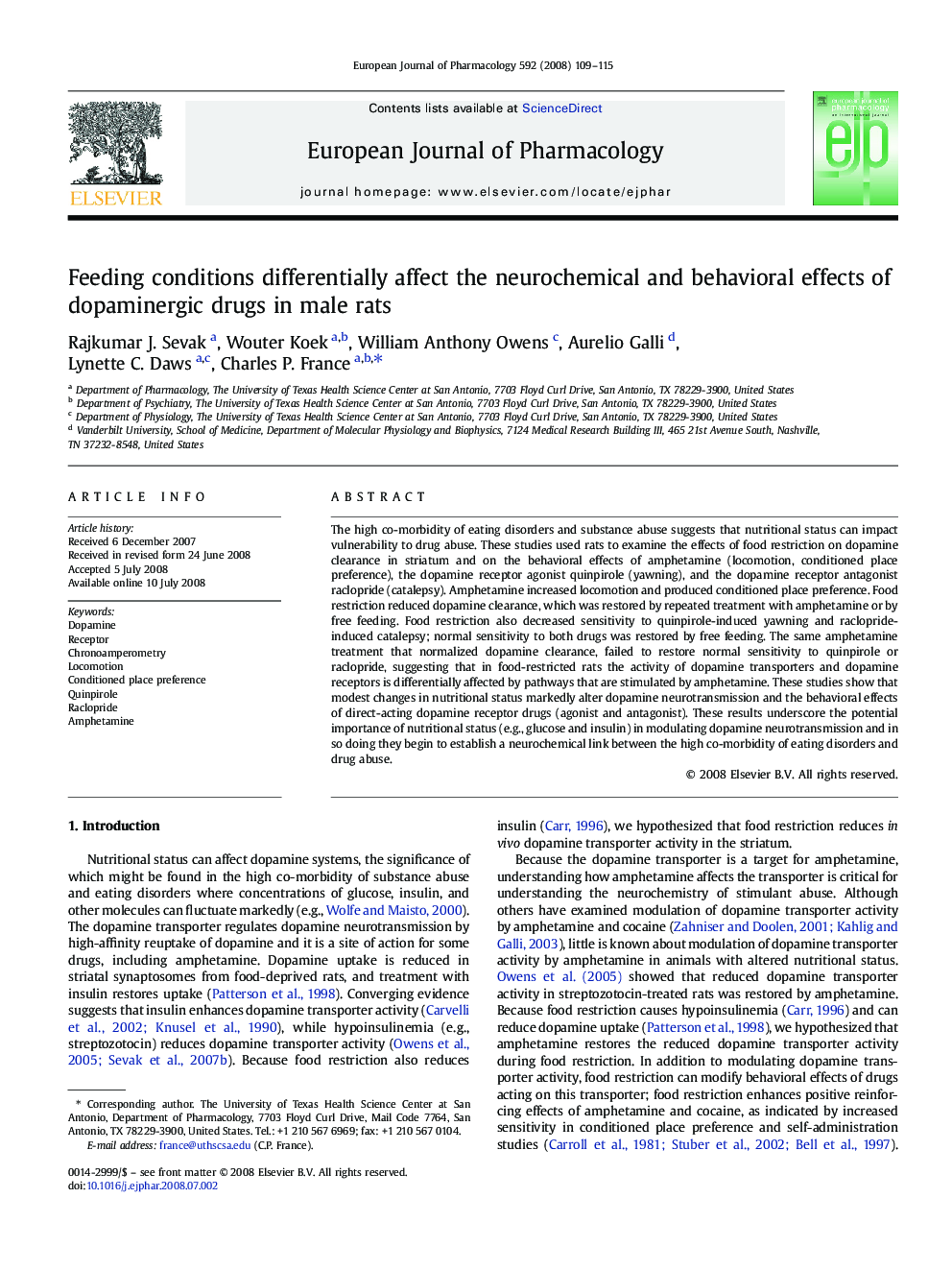| Article ID | Journal | Published Year | Pages | File Type |
|---|---|---|---|---|
| 2534870 | European Journal of Pharmacology | 2008 | 7 Pages |
The high co-morbidity of eating disorders and substance abuse suggests that nutritional status can impact vulnerability to drug abuse. These studies used rats to examine the effects of food restriction on dopamine clearance in striatum and on the behavioral effects of amphetamine (locomotion, conditioned place preference), the dopamine receptor agonist quinpirole (yawning), and the dopamine receptor antagonist raclopride (catalepsy). Amphetamine increased locomotion and produced conditioned place preference. Food restriction reduced dopamine clearance, which was restored by repeated treatment with amphetamine or by free feeding. Food restriction also decreased sensitivity to quinpirole-induced yawning and raclopride-induced catalepsy; normal sensitivity to both drugs was restored by free feeding. The same amphetamine treatment that normalized dopamine clearance, failed to restore normal sensitivity to quinpirole or raclopride, suggesting that in food-restricted rats the activity of dopamine transporters and dopamine receptors is differentially affected by pathways that are stimulated by amphetamine. These studies show that modest changes in nutritional status markedly alter dopamine neurotransmission and the behavioral effects of direct-acting dopamine receptor drugs (agonist and antagonist). These results underscore the potential importance of nutritional status (e.g., glucose and insulin) in modulating dopamine neurotransmission and in so doing they begin to establish a neurochemical link between the high co-morbidity of eating disorders and drug abuse.
